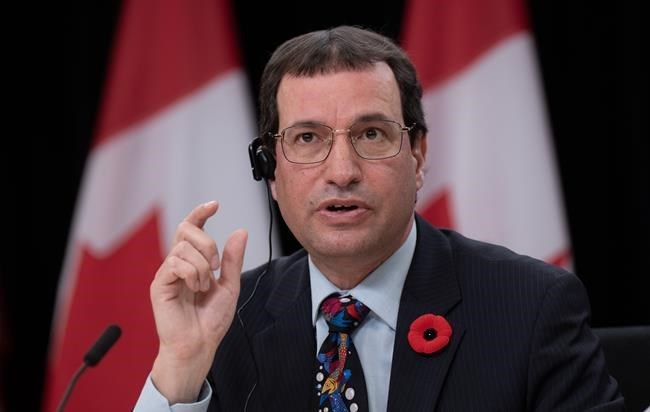OTTAWA — The national infrastructure program to install electric chargers for passenger vehicles is too concentrated in a small number of provinces and has no data to show where the biggest gaps are, a new audit says.
The report was one of several that federal environment commissioner Jerry DeMarco tabled in the House of Commons on Tuesday.
DeMarco said the good news is that Canada appears on track to hit its goal of installing 33,500 charging ports by 2026.
As of July, the Zero Emission Vehicle Infrastructure Program had approved and funded 33,887 charging ports. About 13 per cent of them were already operational, and the rest are supposed to be up and running by March 2026, said DeMarco.
However, he said almost nine in 10 of the ports that had been funded were in Ontario, Quebec or British Columbia.
There were no targets set to identify where need was the greatest, or to ensure that lower-income communities and rural and remote areas were served by the program, the audit found.
It's critical for Canadians to know that charging stations are available so they have confidence to make the switch to electric vehicles, DeMarco said.
With Canada mandating that all new passenger vehicles sold must be electric by 2035, he said, every Canadian will be affected by charging infrastructure, or the lack of it.
DeMarco also said the program isn't monitoring how well the stations are operating after they are installed.
In a second audit, the environment commissioner found that the federal government has set lofty targets for converting its own vehicle fleets to electric, but the departments with the most vehicles are not making the transition fast enough.
DeMarco said Canada wants eight in 10 of its federal fleet vehicles to be electric by 2030, but as of March 2022, only 586 of more than 17,000 vehicles had been replaced with electric models.
The audit said at the rate Canada is transitioning its fleet to electric vehicles, only 13 per cent, not 80 per cent, will be electric by 2030.
Natural Resources Minister Jonathan Wilkinson said he agrees with all of DeMarco's recommendations.
"A number of the recommendations he's made we've actually been working on for some time, including things like ensuring a broader distribution of electric-vehicle charging across the country," Wilkinson said.
Wilkinson said he has also been in discussions with his department about ensuring the reliability of charging stations.
This report by The Canadian Press was first published Nov. 7, 2023.
Mia Rabson, The Canadian Press

